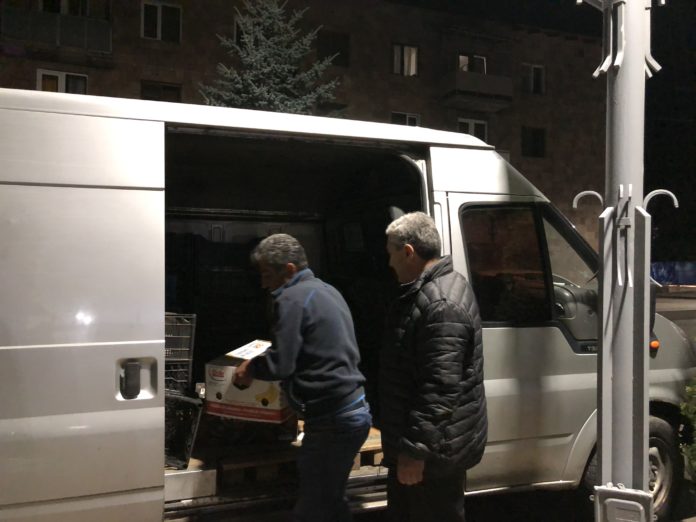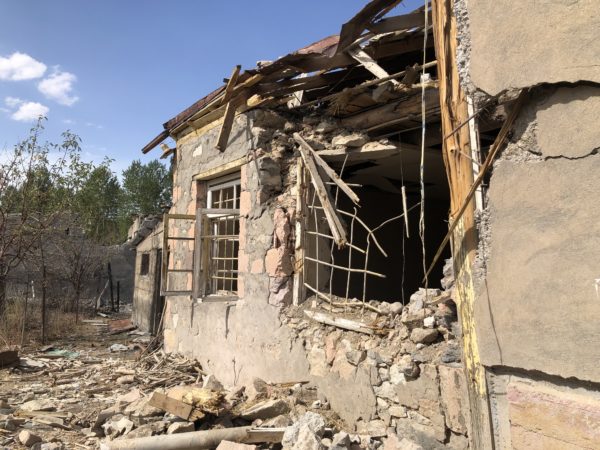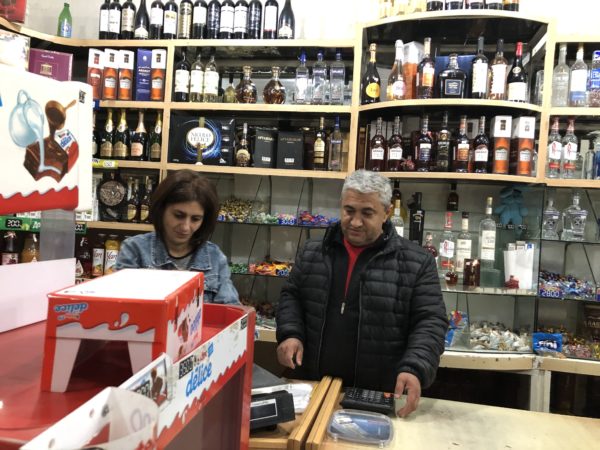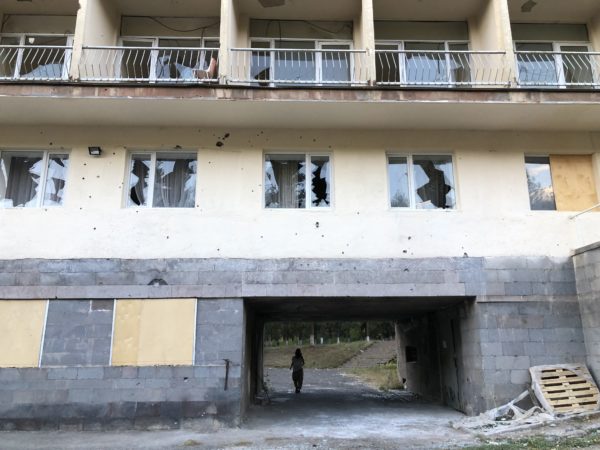By Lida Asilyan
Special to the Mirror-Spectator
SOTK, Armenia — Just a stone’s throw from Sotk, a village 173 kilometers from Yerevan, slow-rising smoke reaches the residents from the mountains beyond their control. The bricks of a newly-constructed house sparkle with dust coming from a fresh hole in the wall. The 65-year-old Surik Martirosyan’s house was struck minutes after he stepped out. Martirosyan thought it was one of the daily shootings, but the entire sky was burning red with hundreds of missiles falling down.
He came home to have dinner after a long day on the farm on the late evening of September 13, 2022. “It was a war movie I was watching, and it turned out a real war was going on outside when my daughter called me,” he says. The gray-haired farmer was at home with his daughter and two grandchildren. Half barefoot, he ran out to turn on the car. The car stopped working, so they started running toward his friend’s house. “It wasn’t even a few minutes we ran when it fell on the house,” he says, whipping the sweat from his forehead.
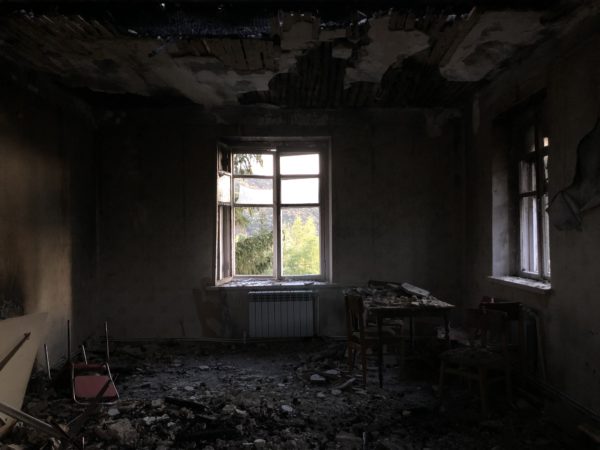
Azerbaijan launched a wide-scale attack against Armenia around midnight of September 13, targeting at least three dozen locales along the southern and south-eastern borders, including small settlements like Sotk, Vardenis, Goris and Kapan. This escalation which ended on September 14 through international mediation, has been the largest escalation between the two sides since the Second Nagorno-Karabakh war in 2020.
Armenia has announced the death of 207 of its soldiers, while Azerbaijan has claimed 77 casualties of its service members. Three civilian fatalities have been reported in Armenia, and several civilians on both sides were wounded.



